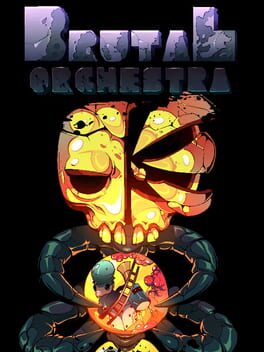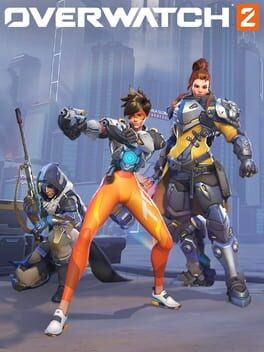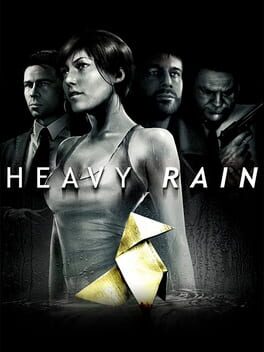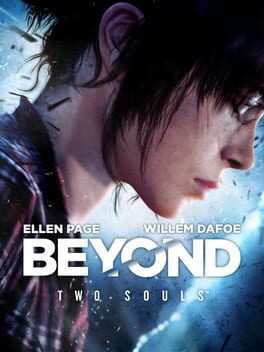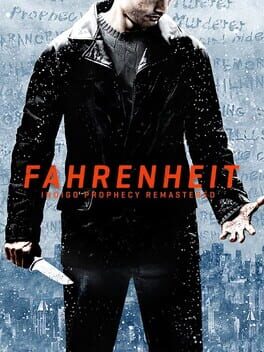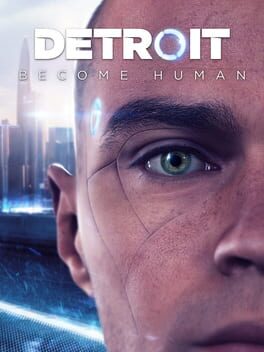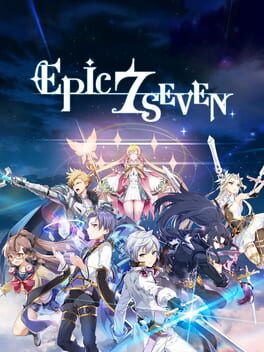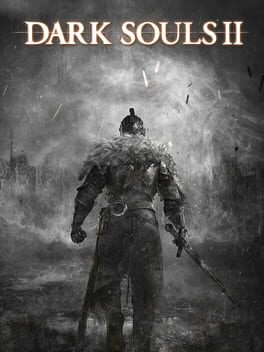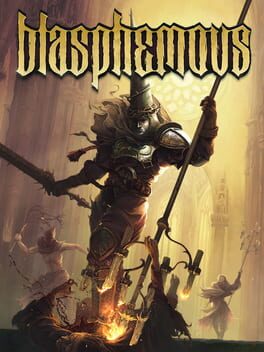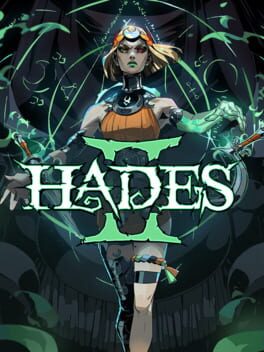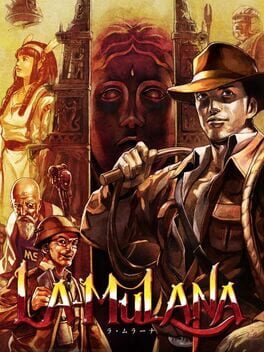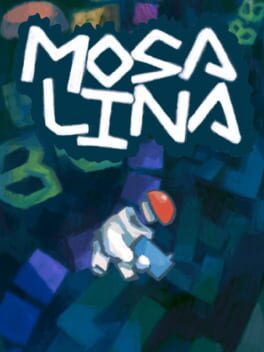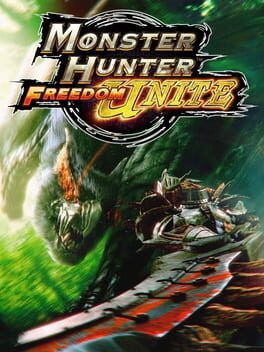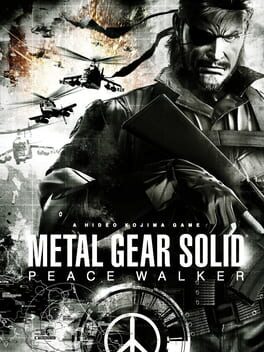utterlynowhere
2021
A fever dream intoxicated by a gut-slapping, face-punching atmosphere. Brutal Orchestra is tight, understanding that roguelites are also about trade-offs, not just progression.
Some call it charm, some call it quirk, but Brutal Orchestra has attitude. An attitude reinforcing not only its visuals, sound and atmosphere with oppression but also its mechanical aspects.
It's easy to say identify what is "peak" or not. Simply stand on the foot of the mountain, point your finger on the highest point of a mountain, and tell your peers it is "peak". Unfortunately, it takes a very few people to climb a mountain and actually stand on its "peak". Brutal Orchestra? It is the peak.
Some call it charm, some call it quirk, but Brutal Orchestra has attitude. An attitude reinforcing not only its visuals, sound and atmosphere with oppression but also its mechanical aspects.
It's easy to say identify what is "peak" or not. Simply stand on the foot of the mountain, point your finger on the highest point of a mountain, and tell your peers it is "peak". Unfortunately, it takes a very few people to climb a mountain and actually stand on its "peak". Brutal Orchestra? It is the peak.
2023
"Clean" game-design, and "curated" experiences are the malignant tumors of the video game industry in general. Trends such as "esports-first", "skill-based gameplay" or "hero-shooters" had been reinforced in the past couple of decades. Yes, reinforced.
If you're not grabbed by the ultra-sweaty, try-hard metagaming of Overwatch, don't worry. They'll grab you with their tokenized representations of their characters or you may fancy a skin-or-two in their premium shop instead.
If you're not grabbed by the ultra-sweaty, try-hard metagaming of Overwatch, don't worry. They'll grab you with their tokenized representations of their characters or you may fancy a skin-or-two in their premium shop instead.
2010
2013
2018
2014
While Dark Souls II has quite doubled-down on the more action-y parts of its core mechanics, it made sure to retain some of the novelty of its boss fight.
Yes, overworld wasn't really much cohesive. There's a lot of half-assed mechanics and throwbacks, and gank city is where Dark Souls 2 is set in.
I've considered all of that but I do miss From Software's consideration on structuring a boss-arena uniquely, from terrain and level-design before it became simply a "press the dodge button on the right-time", the Souls game that most probably know now.
Yes, overworld wasn't really much cohesive. There's a lot of half-assed mechanics and throwbacks, and gank city is where Dark Souls 2 is set in.
I've considered all of that but I do miss From Software's consideration on structuring a boss-arena uniquely, from terrain and level-design before it became simply a "press the dodge button on the right-time", the Souls game that most probably know now.
2019
A metroidvania with some of the most delicious sprite-work that I've seen in indie games. I find the environmental design to be rather fantastic, in terms of locales and diversity too. There's something so captivating with the mix of Gothicism and Catholicism slapped meticulously with its dark-fantasy aesthetic, wearing it loud and proud.
That's all the praise that I can give to Blasphemous, unfortunately. The rest of the game, being mechanics and gameplay are quite unremarkable. It isn't bad, it's just kinda there, sitting and existing.
That's all the praise that I can give to Blasphemous, unfortunately. The rest of the game, being mechanics and gameplay are quite unremarkable. It isn't bad, it's just kinda there, sitting and existing.
2024
Hades II's core combat has changed massively, even if it slows down the process. Instead of going all-in on your boons, Hades II now requires you to fully utilize your kit.
Survivability, crowd-control, and utility are now much more viable instead of mindlessly pumping damage to clear rooms faster. Yes, it's actually much more roguelite this time around, compared to its predecessor.
It isn't without problems, though. Its crafting system is something that I don't really like, though admittedly much more digestible compared to other crafting systems. Being only able to bring one tool to gather ores, dig up seeds, or fishing turns the game into a massive grind.
Hades II is an improvement, and is something that I'd look forward to upon its full release.
Survivability, crowd-control, and utility are now much more viable instead of mindlessly pumping damage to clear rooms faster. Yes, it's actually much more roguelite this time around, compared to its predecessor.
It isn't without problems, though. Its crafting system is something that I don't really like, though admittedly much more digestible compared to other crafting systems. Being only able to bring one tool to gather ores, dig up seeds, or fishing turns the game into a massive grind.
Hades II is an improvement, and is something that I'd look forward to upon its full release.
2012
2005
I spent the last 20 minutes trying to come up with words to describe Killer7. Here's the thing, I can't.
Killer7 is something that I'd consider as one of the bastions of PS2's unique catalogue. It's an impenetrable video game that stands time, regardless of how bizarre you think the game is. Killer7 is scary, not because it's kind of a horror game, but rather this game's presentation, structure and aura is something that you'll never find amongst other games.
Killer7 will always be an itch that one would never scratch, and you'll have to accept it at that for the rest of your life.
Killer7 is something that I'd consider as one of the bastions of PS2's unique catalogue. It's an impenetrable video game that stands time, regardless of how bizarre you think the game is. Killer7 is scary, not because it's kind of a horror game, but rather this game's presentation, structure and aura is something that you'll never find amongst other games.
Killer7 will always be an itch that one would never scratch, and you'll have to accept it at that for the rest of your life.
2023
This game will beat you up, dumpster you, disrespect you, yet it would bring out the best out of you.
And when you are on your best, the game decides, "nah", and then it beats you up, dumpsters you, disrespects you and even nails the coffin conveniently for you.
Jank and clunk made out and decided to have their first offspring with Monster Hunter in 2004. Monster Hunter Freedom Unite is Monster Hunter's grandson, teaching you the ways of a hunter.
Monster Hunter Freedom Unite teaches you that there is fun in inconvenience, and requires you to grasp even an inch of its system to enjoy it somewhat.
This game would not stand on modern-industry standards, and yet, here I am, glad that I've experienced and enjoyed such a monstrous force of nature of a video game.
And when you are on your best, the game decides, "nah", and then it beats you up, dumpsters you, disrespects you and even nails the coffin conveniently for you.
Jank and clunk made out and decided to have their first offspring with Monster Hunter in 2004. Monster Hunter Freedom Unite is Monster Hunter's grandson, teaching you the ways of a hunter.
Monster Hunter Freedom Unite teaches you that there is fun in inconvenience, and requires you to grasp even an inch of its system to enjoy it somewhat.
This game would not stand on modern-industry standards, and yet, here I am, glad that I've experienced and enjoyed such a monstrous force of nature of a video game.
At some point, you'll wonder: "Am I playing Monster Hunter or MGS?". I'm well aware that Tigrex and Rathalos is in this, but the amount of times that I'd have to push myself to farm some of the most boring bosses that I've encountered is Metal Gear Solid: Peace Walker's biggest sin.
The rest, though? Beautiful, almost perfect. Managing the Motherbase is fun, and has the goofiest story amongst the franchise. I mean, the first boss fight is a truck. A FUCKING TRUCK, I tell you.
Peace Walker is saved by its extremely open mission structure. Something that subsequent Metal Gear games took inspiration of and embraced.
Caveats aside, Metal Gear Solid: Peace Walker is a fantastic game. A stepping stone for MGSV, and a hallmark of PSP's library.
The rest, though? Beautiful, almost perfect. Managing the Motherbase is fun, and has the goofiest story amongst the franchise. I mean, the first boss fight is a truck. A FUCKING TRUCK, I tell you.
Peace Walker is saved by its extremely open mission structure. Something that subsequent Metal Gear games took inspiration of and embraced.
Caveats aside, Metal Gear Solid: Peace Walker is a fantastic game. A stepping stone for MGSV, and a hallmark of PSP's library.
